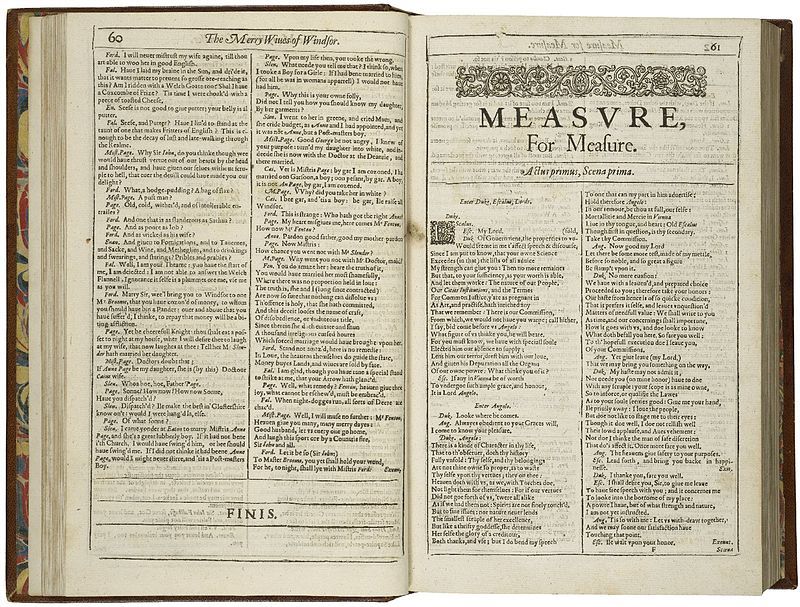Measure for Measure
Measure for Measure is a play by William Shakespeare, believed to have been written in 1603 or 1604. Originally published in the First Folio of 1623, where it was listed as a comedy, the play's first recorded performance occurred in 1604. The play's main themes include justice, "mortality and mercy in Vienna," and the dichotomy between corruption and purity: "some rise by sin, and some by virtue fall." Mercy and virtue prevail, as the play does not end tragically, with virtues such as compassion and forgiveness being exercised at the end of the production. While the play focuses on justice overall, the final scene illustrates that Shakespeare intended for moral justice to temper strict civil justice: a number of the characters receive understanding and leniency, instead of the harsh punishment to which they, according to the law, could have been sentenced.
Measure for Measure is often called one of Shakespeare's problem plays. It continues to be classified as a comedy, albeit a dark one, though its tone may defy those expectations.

Date, text and authorship
Measure for Measure is believed to have been written in 1603 or 1604. The play was first published in 1623 in the First Folio.
In their book Shakespeare Reshaped, 1606–1623, Gary Taylor and John Jowett argue that part of the text of Measure that survives today is not in its original form, but rather the product of a revision after Shakespeare's death by Thomas Middleton. They present stylistic evidence that patches of writing are by Middleton, and argue that Middleton changed the setting to Vienna from the original Italy. David Bevington disagrees, noting that the text can be stylistically credited to the professional scrivener Ralph Crane, who is usually credited for some of the better and unchanged texts in the Folio like that of The Tempest.
It is generally accepted that a garbled sentence during the Duke's opening speech (lines 8-9 in most editions) represents a place where a line has been lost, possibly due to a printer's error. Because the folio is the only source, there is no possibility of recovering it.

















0 comments
Sign in or create a free account